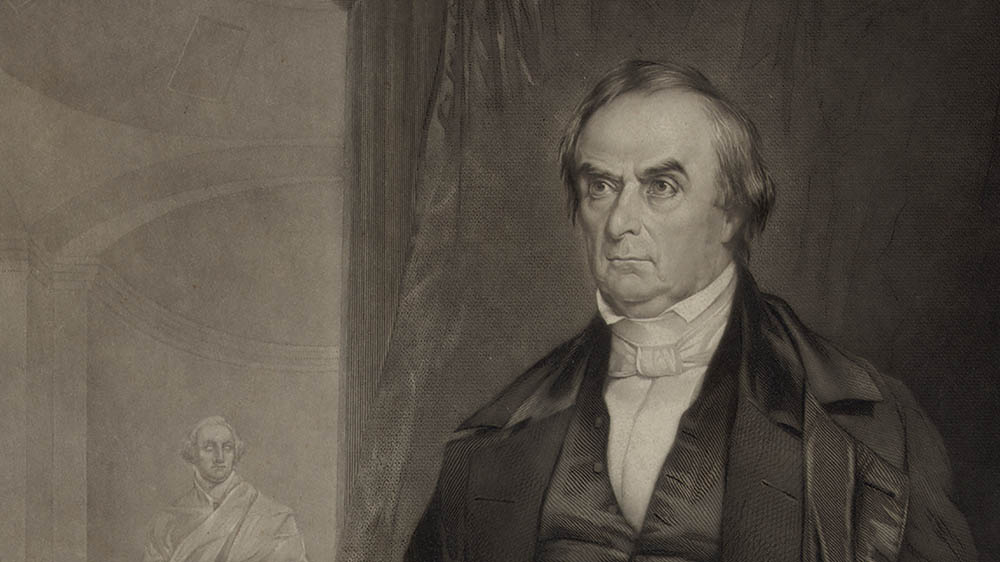The following is the first in a seven-part series. We hope you’ll enjoy.
Not many statesmen can deliver a single speech so powerful that it inspires an audience to name an entire town after them. This, however, was exactly the feat accomplished by U.S. Senator Daniel Webster of Massachusetts on July 25, 1837, on the steps of the Rochester courthouse just as the citizens of North Penfield were considering the name for their new town.
Webster stopped in Rochester on a tour of upstate New York by Erie Canal packet boat. The Whig farmers found themselves so impressed by his power of speech—the Rochester Democrat called him “the cleverest fellow in the world for embellishing a story”—that they began to consider a lasting way to honor him.
What topic could so stir their hearts? Webster spent that summer speaking about the platform he had formed during his presidential run in 1836: stimulating the economy by imposing tariffs on imported goods. A determined defender of the Constitution, he spoke about his opposition to “nullification”, a practice proposed by his opponents in the Senate in which a state could simply ignore any federal law with which it did not agree. This ongoing defense of the nation’s founding document had already earned Webster his reputation
as the greatest orator of his time.
On February 6, 1840, New York State Governor William Seward signed the founding of Webster, New York into law. The small town of 2,235 residents began its rise to a prominent place in the nation’s agricultural and commercial scene—and its namesake senator rose as well. When William Henry Harrison became President of the United States in early 1841, he chose Webster as his Secretary of State.
A few days later, Harrison took ill and died of pneumonia, and Vice President John Tyler rose to the presidency. Tyler kept Webster in his Cabinet position, giving the secretary the opportunity to settle longstanding border disputes with England over the region that became Canada. The Webster-Ashburton Treaty also ended the slave trade on the high seas, making it more difficult for traders to acquire slaves from Africa—a first step in abolishing slavery altogether.
Webster ran for the Senate again in 1843 and won, representing Massachusetts under the Polk and Taylor administrations. When Millard Fillmore became president, he tapped Webster to be Secretary of State, and Webster negotiated the controversial Compromise of 1850, which made California a free state and allowed New Mexico and Utah to decide on their own whether or not to allow slavery within their borders. The compromise cost Webster his presidential bid in 1851, the second and last time he would attempt to run for the highest office. He died in 1852 at 70 years old.
It’s not clear whether Secretary Webster ever knew that our town was named for him, though we do know he never visited Webster, New York to see what he had inspired. He missed out on a hero’s welcome from supporters who revered his name long after his time in office.
Read the next piece in this seven-part series: The Webster Basket Company



